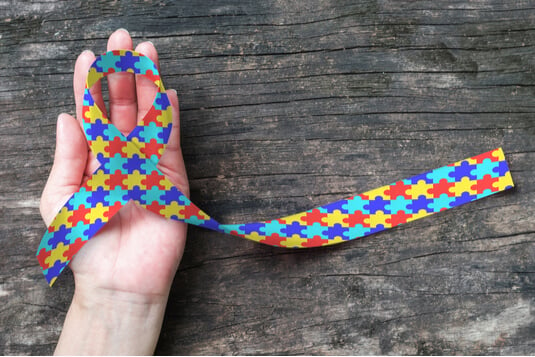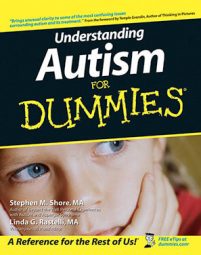-
A lack of joint attention
-
A resistance to being held
-
An appearance of deafness to words
The best thing you can do for your child — whether you think she's autistic or not — is to start an educational/behavioral program early to help with her communication and social challenges. And make sure your child gets medical help for any physical symptoms, such as digestive problems, she may experience. That's the bottom line.
 ©Shutterstock/Chinnapong
©Shutterstock/ChinnapongAccording to Peter Mundy, a professor of psychology at the University of Miami, a social marker known as joint attention or gaze following, which neurotypical babies begin doing in the first 15 months of life, is impaired in autistic babies. Autistic babies don't follow or initiate eye contact in order to share an experience with a caregiver; they initiate eye contact for "instrumental purposes," which means to get something they need, such as food. Impaired joint attention can be a lifelong trait in autistic people, but if doctors and parents to notice the trait earlier, caregivers may be able to identify and help children at risk as early as infancy.
Many professionals share a widespread agreement that social disengagement is what separates autism from other disorders. Children diagnosed with developmental disabilities share a common problem: They need help in communicating and developing social skills. Parents and other caregivers can teach these skills, and the sooner the better, because children's brains develop rapidly. So, whether your child is autistic or not, he or she still needs help, and you can focus on that.This doesn't imply that a diagnosis is unimportant, because it influences treatment, but in many cases where children are diagnosed as being on the autism spectrum, treatment is similar. And treatments that work for some children won't have any effect with others who have identical medical diagnoses.
Diagnoses and prognoses based on behavioral symptoms can and do change. Many people with autism have been misdiagnosed as having mental retardation, schizophrenia, AD/HD, and other conditions.

